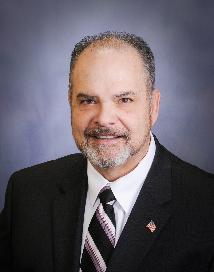By Rep. Ilana Rubel (D-Boise) and Sen. Dave Lent (R-Idaho Falls)

Our criminal justice system is intended to ensure there is an appropriate penalty associated with crime. We refer to this as paying one’s debt to society. However, under some of Idaho’s current laws, the payment never seems to stop. Our courts assign formal penalties, like prison time, probation and fines, but these can often be the least of a former offender’s difficulties.
The bigger problem is the long list of “collateral consequences” that are not part of the sentence but follow individuals far beyond the end of any time served. It is not hard to link these collateral consequences with the unacceptably high rate of people returning to the correctional system.

Often those affected are friends or family members who committed relatively minor offenses, learned their lesson, and are ready to move on with their lives. Unfortunately, these records will follow them forever, and can severely affect their ability to find housing or a job.
Inquiries into their criminal record will follow them to every job and housing application, and can be the first and last question that companies ask before turning them away. The resulting higher rates of unemployment, underemployment and homelessness for these individuals actually increases the risk that they will reoffend. With no money and no roof over their head, it’s no surprise that Idaho’s recidivism rate is 35 percent for felony offenders.
In Idaho, if you were 18 or over at the time of the offense, everything on your record, even misdemeanors, stays in public view to your dying day. The majority of states don’t operate this way. In fact, 41 states and the District of Columbia offer some mechanism for record-sealing for adults, and it has proven successful.
The most comprehensive study we could find showed that for those with relatively minor offenses who had gone several years without reoffending and then had their record sealed, they were 22 percent more likely to be employed, and if previously employed, their wages were 25 percent higher after sealing. Most importantly, this was accomplished with no threat to public safety; in fact, there was substantial benefit. The recidivism rates for these former offenders were extremely low, and arrest rates for those with sealed records were actually 29 percent lower than those of the public at large.
Remember Idaho’s 35 percent felony recidivism rate? This study showed a 1 percent felony recidivism rate for those who had successfully had their records sealed. It turns out that, having been given a chance to get their lives back on track, they did not want to blow their opportunity by reoffending.
Only infractions, misdemeanors and nonviolent felonies that fall below a defined threshold would be sealed. This means those with a need to know, like law enforcement and judges, would still have access to ensure repeat offenders are accounted for. The point is to better define when justice has been served and allow individuals to move on with their lives.
We think it’s time for Idaho to seriously start addressing reform of our criminal justice system. Many of these folks deserve a real second chance, but we continue to hand out these collateral life sentences.
We are proposing legislation referred to as a “Clean Slate” bill that would allow those who have committed non-violent, non-sexual offenses, who have completed their sentence (including probation and parole), and who have gone at least three years without reoffending, to petition a court to have their public record sealed. If they can make their case to the judge that they are no longer a threat to society, they can earn a real shot at getting their lives back on track.
With the cost of our correctional system being second only to education in our state, it is time to consider different approaches to enable those who have paid their price to society to move forward. We need those with criminal records to succeed, not reoffend. Taxpayers are footing the bill every time a person is reincarcerated in our already overburdened prisons, and
it’s better for all of us when more of our citizens are employed.
Instead of setting former offenders up for a life of frustration and desperation that may push them to commit another crime, let’s work to remove barriers to employment and empower them to learn from their mistakes.



